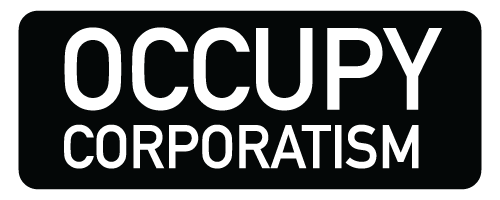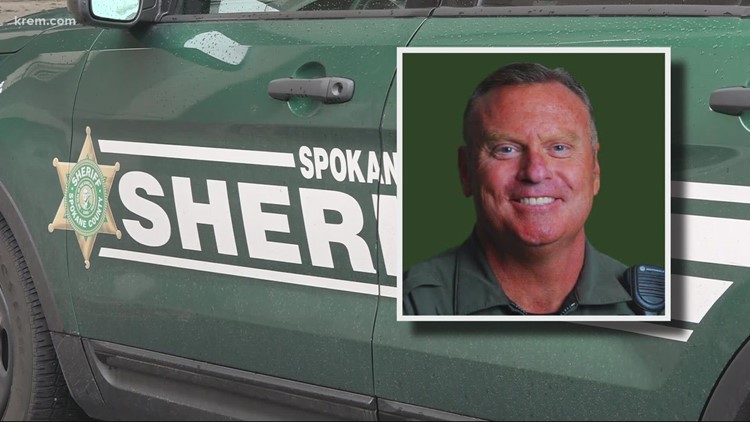Deputy Craig Chamberlin is a police officer in Spokane, Washington who has faced controversy and allegations of misconduct throughout his career. This post will examine Chamberlin’s background, the various incidents and accusations he has faced, and the impact on the local community.
Overview of Deputy Chamberlin’s Career

Chamberlin has served as a sheriff’s deputy in Spokane County for over 15 years. He first joined the force in 2004 after graduating from the police academy.
Throughout his career, Chamberlin has had frequent run-ins with citizens that have led to official complaints and lawsuits. Many of the allegations revolve around excessive use of force, false arrest, and conducting illegal searches.
While Chamberlin has defended his conduct, his controversial tactics have made him a lightning rod within the community. Supporters see him as a dedicated officer trying to clean up crime, while critics view his aggressive approach as crossing ethical and legal boundaries.
Early Incidents and Allegations
The first public incident involving Chamberlin occurred in 2008 when he tased a man named Dan Brown in front of his 8-year-old son. Chamberlin stated he tased Brown because he resisted arrest during a traffic stop.
However, Brown insisted he complied with Chamberlin’s orders and was tased without provocation. He filed an excessive force complaint against Chamberlin but it was dismissed after an internal review.
Over the next few years, Chamberlin racked up over a dozen citizen complaints relating to illegal searches, false arrest, and excessive force. While none of the complaints resulted in formal discipline, they pointed to an emerging pattern with Chamberlin’s policing tactics.
High Profile Excessive Force Case
In 2015, Chamberlin made headlines when he was filmed kicking and choking Anthony Newell, an unarmed black man. The incident occurred when Chamberlin questioned and detained Newell outside a convenience store.
Video showed Chamberlin kneeing Newell in the back and grabbing him by the neck despite Newell not resisting arrest. Chamberlin claimed his use of force was justified because Newell reached for his taser.
The footage contradicted this account, showing Newell complying with Chamberlin’s orders. Local civil rights groups criticized the violent confrontation as racially motivated police brutality.
While Chamberlin was again exonerated after an internal review, the case added to growing concerns about his conduct, particularly towards minorities. It also damaged relations between police and communities of color within the city.
Pattern of False Arrest Accusations
Over the years, Chamberlin has been accused of falsely arresting citizens without probable cause. Critics argue he unfairly targets certain groups and liberally abuses his power to detain people.
In one notable case from 2016, Chamberlin arrested Samuel Wright, a black teenager, while he was walking home from school. Chamberlin claimed he matched the description of a robbery suspect.
However, witnesses confirmed Wright was simply walking home wearing a backpack when Chamberlin handcuffed and arrested him. The charges were soon dropped due to lack of evidence.
Wright’s family sued for wrongful arrest and harassment. The case settled out of court after the police department admitted Chamberlin did not have probable cause to arrest Wright.
Controversial Anti-Crime Operations
In recent years, Chamberlin has led various anti-crime initiatives that opponents consider overzealous and illegal.
In 2017, he spearheaded an operation to crack down on drug activity in lower income neighborhoods. However, critics alleged Chamberlin’s team racially profiled residents by stopping and searching people without cause.
Chamberlin also received backlash for a 2018 initiative called “Operation Safe Summer.” The campaign involved ramping up police presence in areas popular with teenagers and minorities. Opponents again accused Chamberlin of aggressively targeting certain groups without justification.
While Chamberlin defends these operations as necessary to fight crime, many citizens believe they unfairly over-police minority and low income communities.
Impact on Community Relations
Chamberlin’s polarizing history as an officer has harmed relations between police and the public within the city.
For supporters, his aggressive tactics are seen as justified to curb crime, even if they sometimes cross the line. But his critics argue Chamberlin repeatedly abuses his power, eroding trust in law enforcement, especially among vulnerable groups.
The recurring misconduct accusations have taken a toll on Chamberlin’s reputation locally. While never criminally charged, many citizens see Chamberlin as negligent at best and corrupt at worst based on the sheer volume of complaints against him.
Going forward, repairing community trust in the wake of Chamberlin’s tenure will require policing reforms and accountability. However, his repeated exonerations also highlight limitations of internal review systems.
Ultimately, Chamberlin’s career raises important questions around how police misconduct is addressed. While deputies like Chamberlin see themselves as crime fighters, many feel their self-guided zeal does more harm than good.
Efforts at Greater Police Accountability
In response to Chamberlin and other controversial officers, Spokane has taken small steps to increase police accountability and oversight in recent years.
For example, the city created a civilian ombudsman position in 2016 to independently review police complaints. However, the ombudsman can only make non-binding policy recommendations.
Spokane also mandated the use of body cameras for all patrol officers in 2017. But there are concerns about camera policies allowing officers discretion on when to activate recordings.
While positive, reform advocates argue these measures are modest compared to creating fully independent civilian review boards with investigative authority.
Pushback from the deputy sheriff’s union has hampered more substantive accountability reforms so far. With Chamberlin poised to retire soon, the city faces pressure from activists to enact greater oversight.
Deputy Chamberlin’s Impact on the Sheriff’s Department
Throughout his career, Craig Chamberlin proved a polarizing figure within his own department. His aggressive tactics earned him praise and promotions from some. But they also alienated colleagues uncomfortable with his conduct.
On one hand, Chamberlin garnered admiration as a dedicated “street cop” willing to proactively confront criminals. His brash style appealed to old-school law and order mentalities.
However, others saw Chamberlin as a cowboy undermining public trust in the department. There are concerns his attitude influenced younger, impressionable deputies to mimic his hands-on approach.
Chamberlin’s repeated complaints also frustrated department leadership. While never warranting formal discipline, the constant allegations were an administrative headache.
Looking ahead, the sheriff’s office must consider how Chamberlin’s example impacted department culture around use of force and community relations. His legacy will likely continue affecting the trajectory of reform efforts.
Conclusion
Craig Chamberlin’s long career as a Spokane deputy sheriff has been dogged by controversy and allegations of misconduct. However, his conduct also underscores deeper issues around policing and racial bias.
While Chamberlin feels he is being unfairly maligned, the sheer number of citizen complaints paints a troubling picture of a deputy overstepping his authority.
Moving forward, Spokane must balance public safety with building community trust in law enforcement. The city also faces pressure to enact substantive accountability measures aimed at preventing future cases like Chamberlin’s.
Reforms must balance protecting citizens’ rights with allowing officers discretion to combat crime. But Chamberlin’s impact shows aggressive policing without oversight can do more harm than good.
Ultimately, examining deputies like Chamberlin presents an opportunity to reassess law enforcement policies through the lens of justice, fairness and public trust. It also serves as a reminder of how police culture needs to evolve to better serve all citizens.







